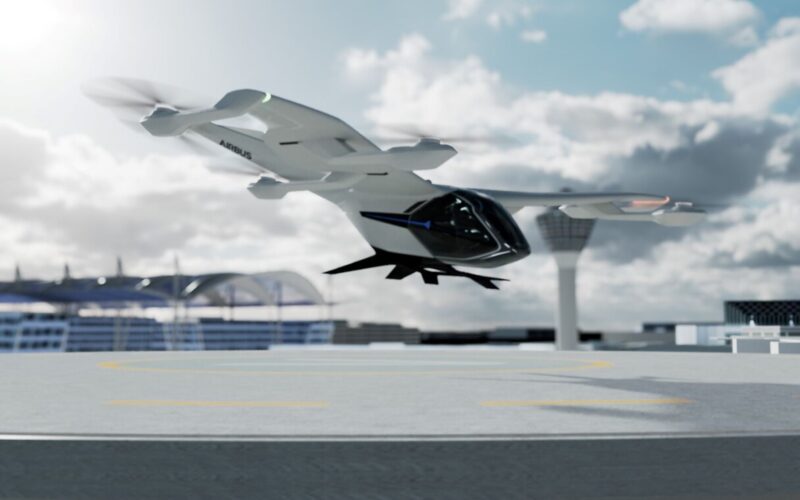Airbus is preparing to start assembling its electric vertical take-off and landing (eVTOL) vehicle, the CityAirbus NextGen.
The maiden flight of the prototype aircraft is now planned for 2024, a year later than was announced during the original unveiling of the project back in 2021.
Airbus announced at a press briefing that it had begun building a dedicated testing center in Donauworth, Germany, VerticalMag reports.
Meanwhile FlightGlobal reports that the briefing also saw the emergence of numerous details about the control scheme of the eVTOL. According to Balkiz Sarihan, head of Airbus urban air mobility (UAM), the human-machine interface of the vehicle is due to be provided by French company Crouzet and will include a flight stick.
Earlier reporting suggested the CityAirbus was to be fully autonomous, while Crouzet, in their press release published in January 2023, explained that the pilot is going to manage only the trajectory of the aircraft and not the attitude.
The eVTOL was first showcased in September 2021 and followed a number of tests on technology demonstrators, performed by Airbus between 2019-2021.
At the unveiling ceremony, Airbus announced that CityAirbus will have a cruising range of 80 kilometers (50 miles) and a cruise speed of 120 kilometers per hour (65 knors, 75 miles per hour).
It’s going to be a four-seat aircraft powered by 16 electric motors, manufactured by US-based company Magicall.
The plan as revealed in 2021 envisioned the prototype of the aircraft starting flight tests in 2023 and receiving a flight certificate by 2025. Airbus did not comment on why the timeline was shifted.
CityAirbus is set to be the first step into the commercial eVTOL market for the European aerospace conglomerate. Numerous other companies, most of them smaller startups backed by well-established aerospace manufacturers, are on track to test, certify and began commercial operations of their eVTOLs by 2025-2026.

